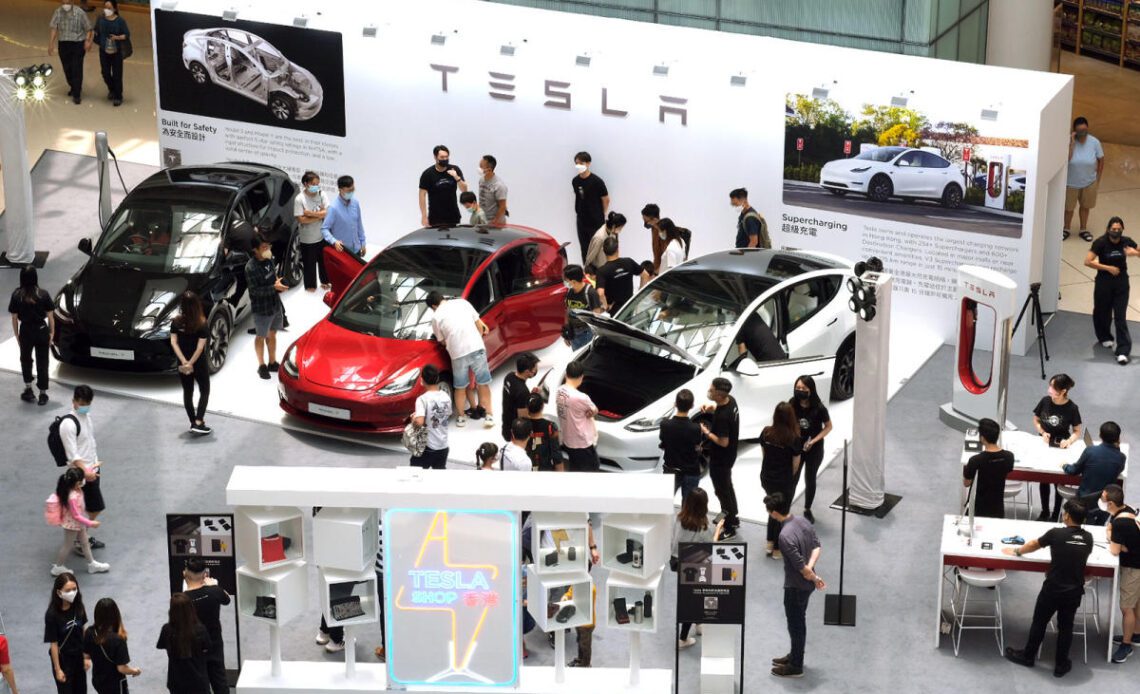With the Biden administration’s continued attempt to limit Chinese battery components in US electric vehicles, Tesla has now announced that two of its models won’t qualify for the full $7,500 federal tax credit as of January 1, 2024. As pointed out by our sister site TechCrunch, Tesla’s website currently has a top banner claiming that tax credit “reductions likely for certain vehicles in 2024,” urging customers to “take delivery by 12/31” in order to qualify for the full claim. A link in the banner toggles a message that specifies which two models are likely to be affected:
“Customers who take delivery of a qualified new Tesla and meet all federal requirements are eligible for a tax credit up to $7,500. Tax credit will reduce to $3,750 for Model 3 Rear-Wheel Drive and Model 3 Long Range on Jan 1, 2024. Take delivery by Dec 31 to qualify for full tax credit.”
According to the IRA (Inflation Reduction Act) rules, vehicles using battery components that are 50 percent made or assembled in the US qualify for the first half of the tax credit, i.e. $3,750. The cars can only get the remaining half of the credit if their manufacturer sources at least 40 percent of their critical minerals from the US or its free trade partners, which don’t include China. If a company meets one or the other standard, the vehicle gets a half credit.
However, with the latest proposal on IRA credit rules issued on December 1, the Biden administration wants to further tighten the clean vehicle tax credit requirements by targeting FEOCs (Foreign Entity of Concern), which include China, Russia, North Korea and Iran:
“Beginning in 2024, an eligible clean vehicle may not contain any battery components that are manufactured or assembled by a FEOC, and, beginning in 2025, an eligible clean vehicle may not contain any critical minerals that were extracted, processed, or recycled by a FEOC.”
Back in June, the cheapest Tesla car, the rear-wheel drive Model 3, was able to switch from half the tax credit to full credit, likely due to a change in supplier or materials to meet the guidelines. While the latest reversal still offers half the credit, this may eventually be zeroed next year, unless Tesla is willing to source batteries from other countries — which are likely more expensive.

